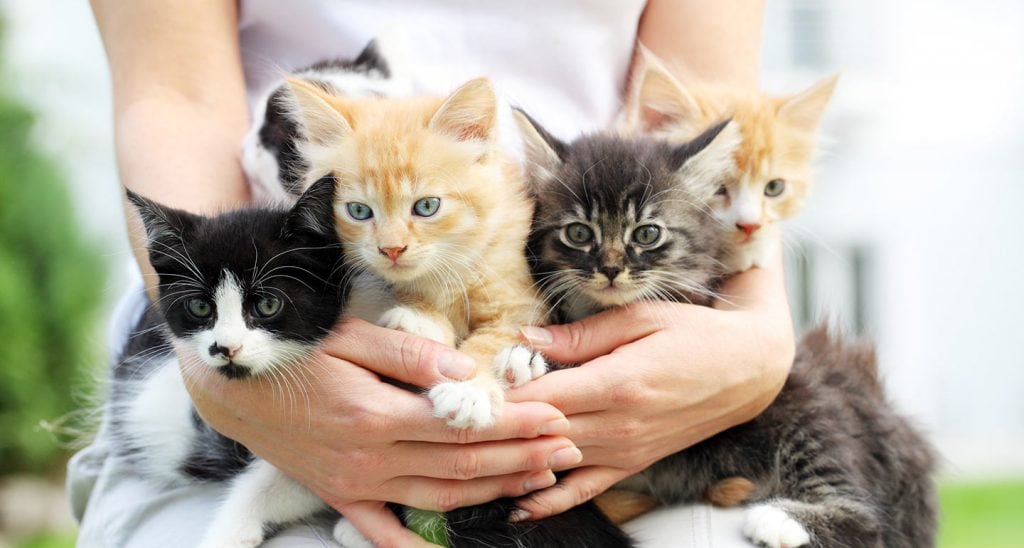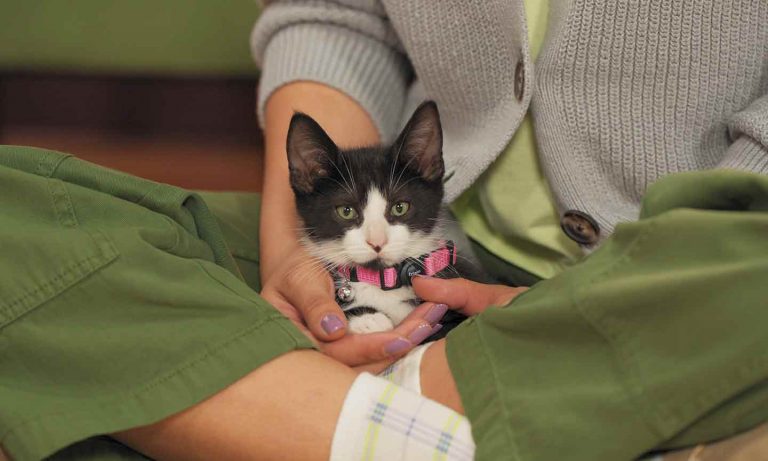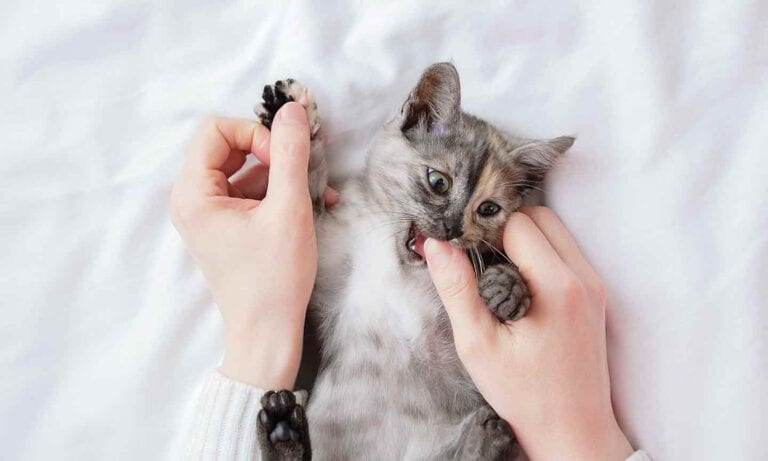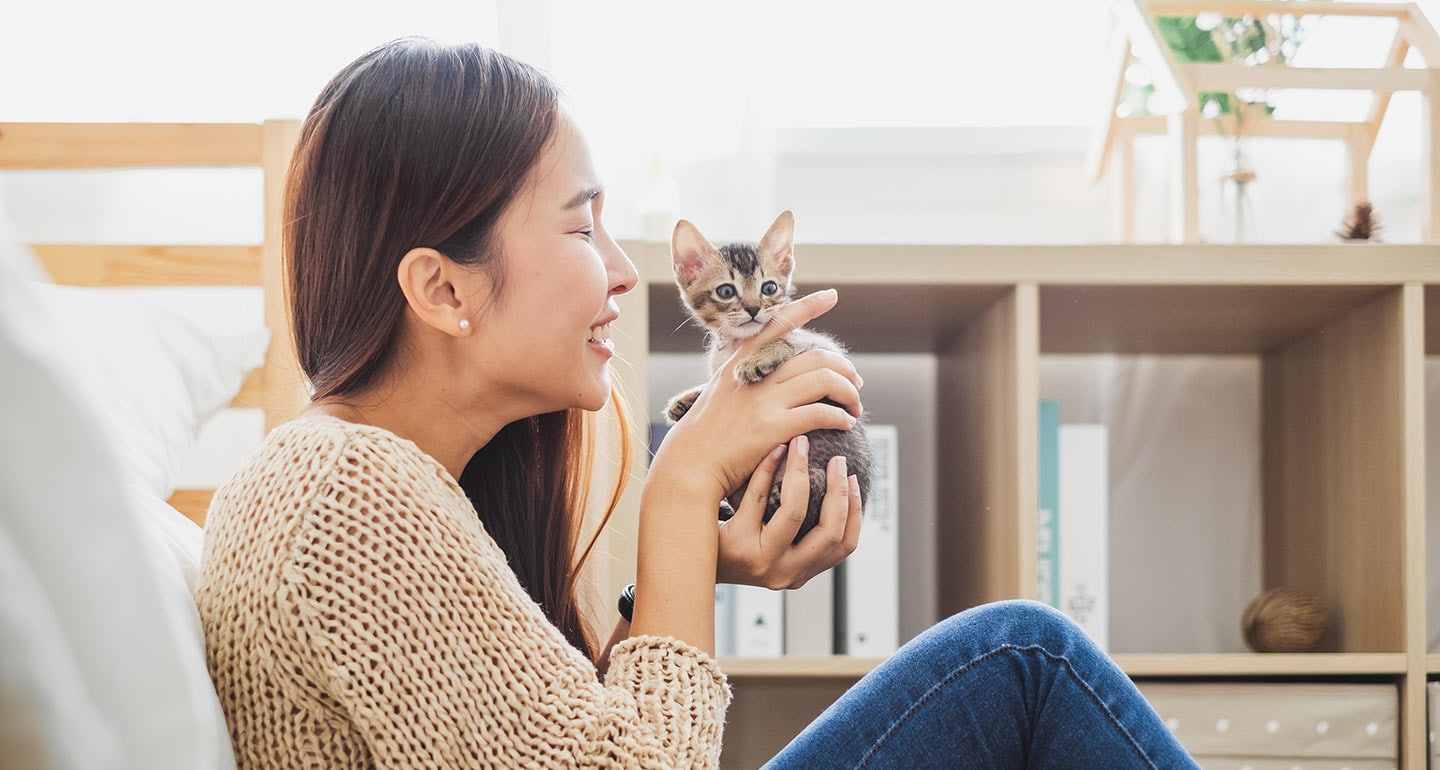
Many creatures need the care and support of their mothers in their earliest weeks, and cats are no exception. At most shelters and rescues, kittens can be adopted starting at 8 weeks. Breeders will often wait until the kitten has been with their mother for at least 12 weeks, with many breeders waiting until 14 weeks.
That’s because there are many perks to sticking around their furry family members. One of the biggest: socialization. “When kittens stay with their mother and other littermates, they learn how to play appropriately and how to communicate with other cats,” says Bruce Kornreich, Ph.D., DVM, DACVIM, director of Cornell Feline Health Center at Cornell University’s College of Veterinary Medicine in Ithaca, New York.
In other words, this is how cats learn to be a cat. For instance, mothers and littermates help teach their kittens the difference between a hard bite and a soft one. “If a kitten bites their littermates, a lot of times their littermates squeal or meow, and then they run off,” says Marci L. Koski, Ph.D., a certified feline behavior and training consultant and owner of Feline Behavior Solutions in Vancouver, Washington. “That’s a lesson: ‘OK, I can’t bite that hard or when I do this with my claws, it hurts.’” Mother cats will also walk away when their kittens play too rough.
Kittens also pick up other valuable behaviors from their mom—how to bury their waste, how to hunt for prey (if they’re outdoor cats) and how to groom themselves, Koski says.
The bulk of a kitten’s nutrition comes from their mother for the first few weeks of life, too. Kittens are fully weaned by 8 weeks, but for the first two, they’re solely drinking their mothers’ milk, which provides antibodies to keep them from getting infections, especially in the first 24 hours, Dr. Kornreich says. “When they’re between 3 weeks of age and 8 weeks of age, they can start to eat canned and dry foods,” but will still need supplemental milk from their moms, he adds. So if you’re wondering when kittens can be adopted or brought home from a breeder, you have to take weaning into account, too.
And though kittens can be fully weaned by 8 weeks, there are big benefits to giving them up to 12 weeks with their mamas, Dr. Kornreich says. That’s because kittens enter another socialization period around about 9 weeks of age, lasting until about week 16. “Although the cat is eating solid food at this point, they still continue to learn how to play and interact with other cats and people appropriately. They also become a little more explorative,” he says. All those lessons in play and cat behavior give kittens more confidence—and can lead to a more stable and friendly cat later in life.
The Risks of Bringing a Kitten Home Too Soon
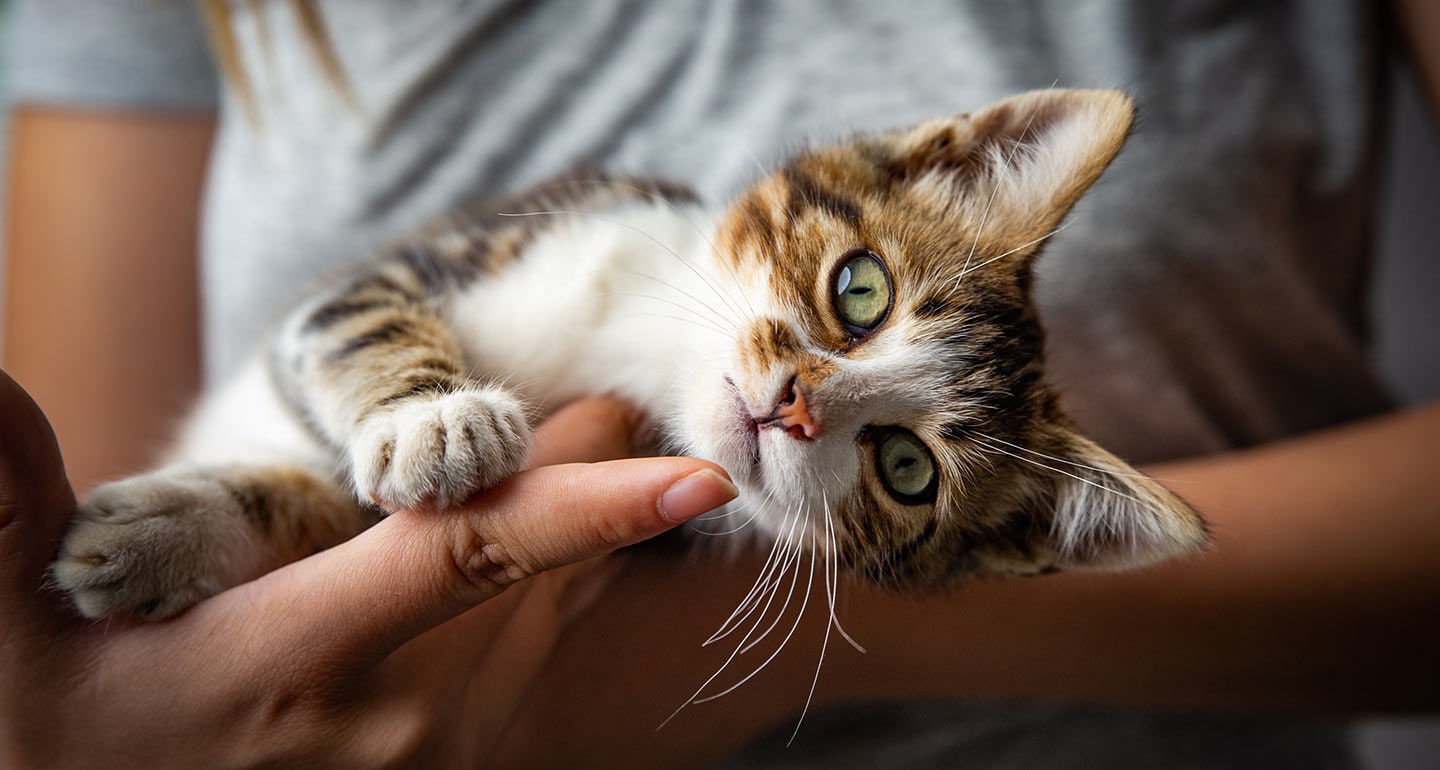
If you’ve fallen in love with a kitten under 8 weeks old, it’s easy to feel tempted to bring them home. But a few weeks of patience will pay off in the long run—and the risks of taking them home too early can affect the rest of your cat’s life, Dr. Kornreich says.
“If you adopt cats before that really early socialization period is taking place, they may be more aggressive with other cats and with people. They may not feel safe and be more skittish,” he explains.
Your kitten may not have good cat manners either, Koski says. “If he doesn’t know about bite inhibition, maybe he plays a little too rough, is a little bit quicker to lash out,” she explains. You can help curb this behavior by taking a cue from mama cats: If your kitten is showing signs of aggression when they play with you, get up and walk away. “That’s exactly what their mom would do,” says Koski. Still, she adds, an easier and more effective solution would be to let your kitten learn these lessons straight from their mom.
What to Do When a Kitten Has Lost Their Mother
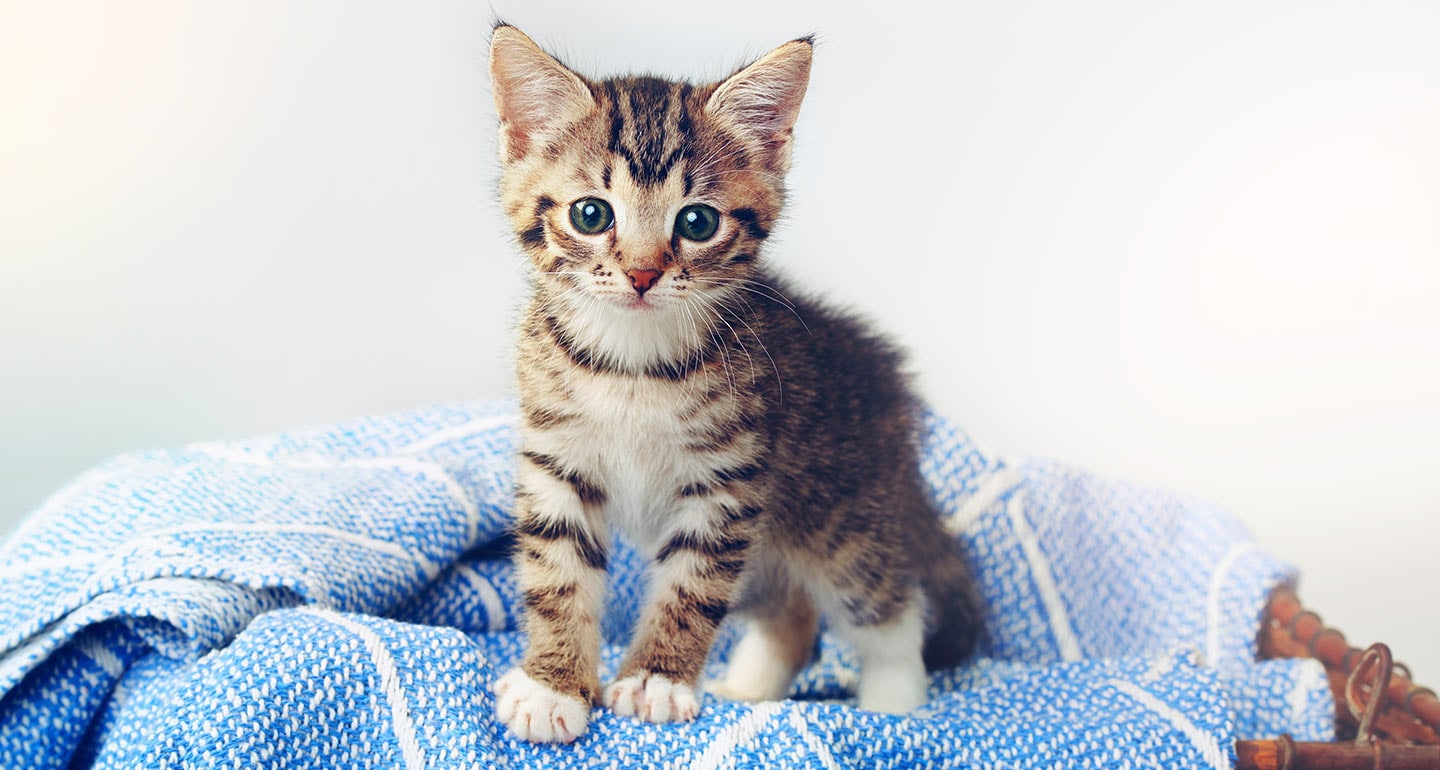
In a perfect world, all kittens would get as much time as they need with their mothers before they move on to their forever home. But unfortunately, sometimes kittens are orphaned or abandoned by their mom when they are super-tiny, even as newborns. That doesn’t mean these babies are lost causes, though—they just need some extra help to thrive.
The best thing to do, if you come across one or more kittens you suspect have lost their mother, is to call your local shelter, Koski says. They may have foster parents available who can take in a kitten or even a whole litter. “Those fosters know what they’re doing—they’ve often done it before,” Koski says.
“Well, why couldn’t I just raise one of these kittens?” you may be wondering. You can, of course—but only if you have the time and resources to devote to these cute-but-needy kitties. The first thing you’ll need, Dr. Kornreich says, is a vet who can guide you through the process. Kittens are very vulnerable to disease and infection, and feeding them the wrong way can cause them to get really sick and even die. So you need someone who knows what they’re doing to give you advice on even the most basic tasks.
Your vet will also likely recommend the following steps to care for your baby kitten:
- Keep a log. You’ll want to record each feeding as well as other important info, like how much weight your kittens are gaining, when they open their eyes (usually around 2 weeks of age), and get their baby teeth, Dr. Kornreich notes. A written log can be helpful when checking in with your vet, too.
- Get specially made kitten milk replacement formula. These formulas take the place of a mother cat’s milk, and provide high amounts of protein, which baby cats need because they’re growing, Dr. Kornreich says. Depending on your kitten’s age, you’ll have to bottle-feed your kitty every two to four hours until you wean them. Ask your veterinarian for kitten formula recommendations.
- Check the flow. Ask your vet to recommend special pet-feeding bottles, too, to make sure your kittens aren’t eating too fast. “You don’t want [the formula] to come out too quickly, because if too much liquid rushes into a kitten’s mouth, they can inhale that,” Dr. Kornreich says. Milk in a kitten’s lungs can cause pneumonia and other problems.
- Practice safe feedings. Boil bottles and nipples to sterilize them, Dr. Kornreich says, and don’t leave formula out at room temperature for more than an hour. You’ll also want to heat up the formula (to about 100 degrees) before you feed the kittens.
- Help kittens pee and poop. Kittens don’t know how to go potty on their own until they’re about 3 weeks old, Dr. Kornreich explains. To stimulate them to go to the bathroom, stroke the area between their anus and vulva or penis with a moistened cotton ball or cloth, he says. Once a week, gently wash them all over with a moist cloth.
- Keep kittens warm. Buy them a soft bed and make sure the temperature in the room is a toasty 85 degrees Fahrenheit, at least for the first week of life. When kittens are 2 and 3 weeks old, you can lower it to about 79 degrees, and then lower it further to about 75 degrees once they’re 1 month old.
As your kitten gets older, they may display behaviors like aggression or skittishness that they would have unlearned if they’d had their mother’s help. For older kittens like these, Koski recommends looking for a kitten kindergarten near you. Some shelters provide them, or your vet may be able to recommend one.
“Kitten kindergarten classes can be really great to help teach the kitten about socializing, especially with other cats, and then also training fundamentals,” Koski says.
You can also consider getting a second kitten to act as a companion to the first, Koski adds—but only if you’re ready.
Share:
